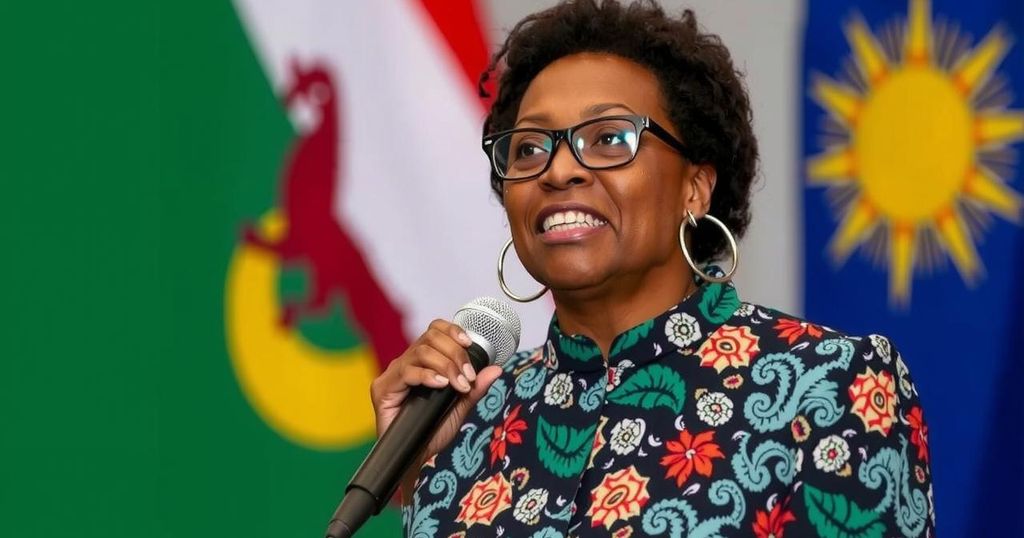Namibia’s Female Vice President Leads Amid Controversial Election Challenges

Namibia’s presidential election revealed significant challenges, including a three-day extension due to technical issues. Vice President Netumbo Nandi-Ndaitwah leads with 56% of early votes, while the opposition contests these results, alleging illegality. Upcoming legal challenges hint at a contentious political landscape.
In Namibia’s recent presidential election, the ruling party’s candidate, Vice President Netumbo Nandi-Ndaitwah, has secured a substantial lead amid significant technical difficulties that postponed voting for three days. Early results show Nandi-Ndaitwah, a crucial figure in the country’s anti-apartheid movement, with approximately 56% of the votes counted, whereas her main opponent, Panduleni Itula from the Independent Patriots for Change, has garnered 27%.
The electoral process was plagued by various challenges, including a shortage of ballot papers, which prompted elections authorities to extend voting up to three days. This situation has raised serious concerns among opposition parties, who have dismissed the results and termed the extension unconstitutional, potentially undermining the integrity of the election, a process historically regarded as stable in Namibia.
As final election results are anticipated later in the week, opposition parties—led by Itula and McHenry Venaani of the Popular Democratic Movement—are preparing to contest the election results in court. Venaani articulated the gravity of the moment, stating, “It is about our country, it’s about our democratic credentials, it’s about the country that must work for everybody, the poor and the rich. It cannot only work for those who want to remain in power by hook or crook.”
Since gaining independence in 1990, Namibia has been under the leadership of the SWAPO party, but the current government faces increasing pressure from citizens dissatisfied with high unemployment and allegations of corruption. Notably, Nandi-Ndaitwah’s potential presidency marks a historic moment as she could become the first female leader in Namibia amidst this political landscape fraught with challenges.
Namibia, a country located on the southwest coast of Africa, has a relatively stable democratic history, having been governed by the SWAPO party since its independence from apartheid South Africa in 1990. Despite its peaceful electoral processes, recent elections have been overshadowed by significant difficulties, including technical errors that have prompted allegations of ineffectiveness and dishonesty from opposition leaders. This current election underscores rising frustration among citizens regarding government corruption and economic hardships, which have particularly affected the youth population.
The ongoing electoral situation in Namibia presents a critical juncture for the nation’s governance, reflecting broader regional trends of political discontent and challenges to established parties. The legal action anticipated from opposition leaders could significantly shape the political landscape moving forward. Nandi-Ndaitwah’s candidacy, while historic, unfolds against a backdrop of public dissatisfaction and the potential erosion of electoral integrity, emphasizing the need for accountability and transparency in governance.
Original Source: abcnews.go.com







